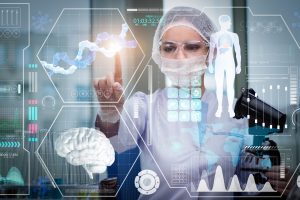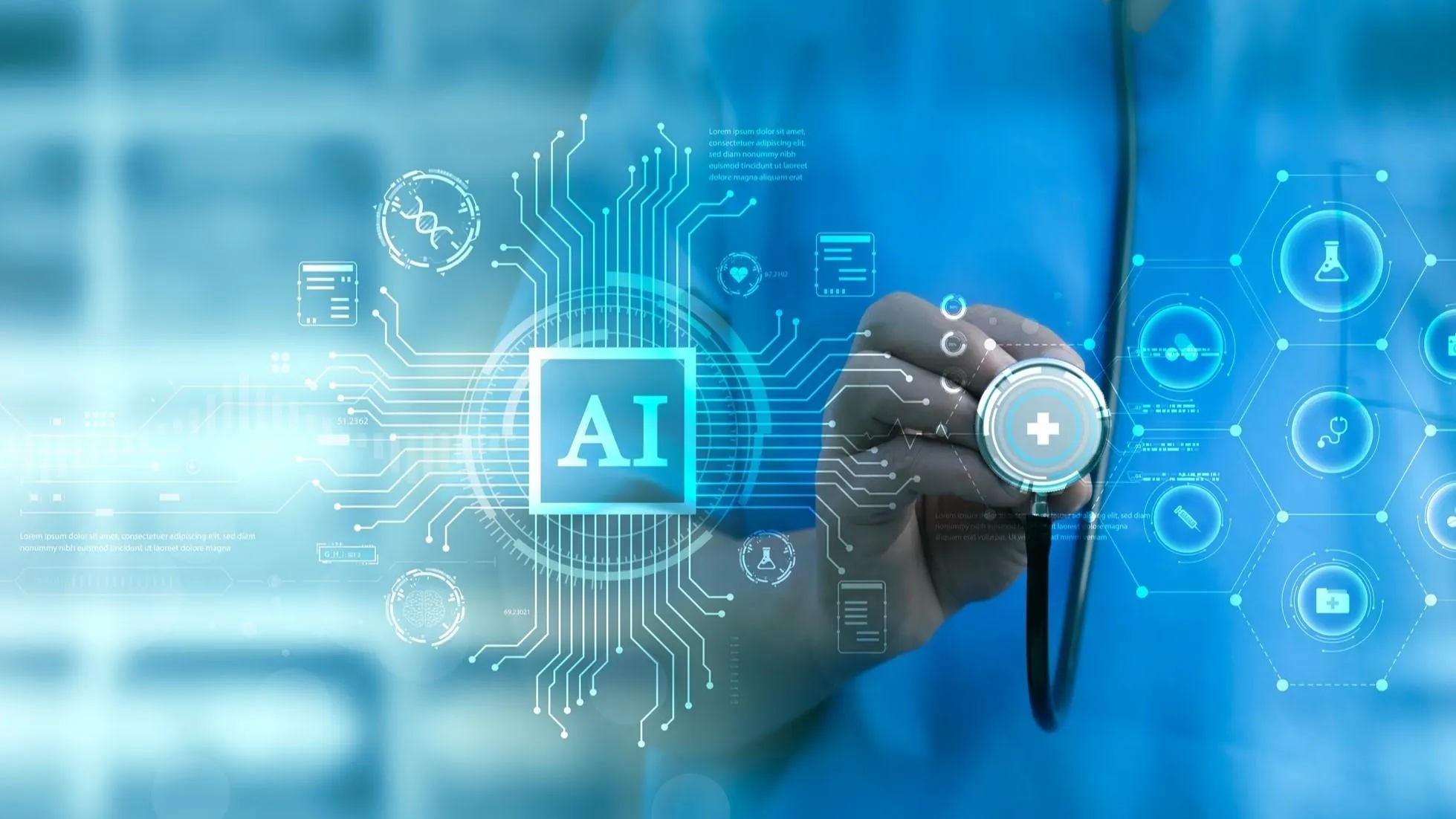The Impact of AI on Healthcare: Trends to Watch
Artificial Intelligence (AI) is transforming numerous industries, with healthcare standing out as one of the most significantly affected. The integration of AI in healthcare not only enhances operational efficiency but also revolutionizes patient care. In this article, we will explore key AI healthcare trends, their benefits, case studies, and examples illustrating the real-world applications of AI in healthcare.
1. Understanding AI in Healthcare

Artificial Intelligence refers to the simulation of human intelligence in machines that are programmed to think and learn. In healthcare, AI applications range from predictive analytics and natural language processing to robotic surgeries and virtual health assistants. The goal is to improve patient outcomes, streamline processes, and reduce costs.
1.1 Key AI Technologies in Healthcare
- Machine Learning (ML): Algorithms that analyze data to learn and make predictions without being explicitly programmed.
- Natural Language Processing (NLP): Enables machines to understand and respond to human language, aiding in tasks like medical documentation.
- Computer Vision: Used in imaging and diagnostic processes, allowing machines to interpret visual data from MRIs, CT scans, and X-rays.
- Robotics: Employed in surgical procedures, rehabilitation, and even patient interaction through robotic companions.
2. Benefits of AI in Healthcare
AI offers numerous benefits, enhancing various aspects of healthcare delivery:
2.1 Improved Diagnostic Accuracy
AI algorithms can analyze vast amounts of medical data, improving diagnostic precision. For instance, a study published in Nature showed that AI outperformed human radiologists in diagnosing breast cancer by analyzing mammograms.
2.2 Personalized Treatment Plans
AI enables healthcare providers to create personalized treatment plans by analyzing patient data and identifying which therapies are most effective based on historical outcomes. For example, IBM’s Watson can analyze medical literature and patient records to suggest personalized cancer treatment options.
2.3 Operational Efficiency
AI automates administrative tasks, such as scheduling appointments and managing patient records, allowing healthcare professionals to focus on patient care. This leads to reduced wait times and increased patient satisfaction.
2.4 Predictive Analytics
AI helps in predicting patient outcomes and identifying potential health risks. For example, algorithms can analyze data from electronic health records (EHRs) to identify patients at risk of developing chronic diseases, enabling proactive interventions.
2.5 Enhanced Patient Engagement

AI-powered chatbots and virtual health assistants can provide patients with immediate assistance and health information, improving engagement and adherence to treatment plans. Tools like Buoy Health guide patients through symptom checking and recommend next steps.
3. Key Trends in AI Healthcare
As AI technology evolves, several key trends are shaping the future of healthcare:
3.1 Increased Adoption of Telemedicine
The COVID-19 pandemic accelerated the adoption of telemedicine, and AI plays a crucial role in enhancing this service. AI tools can analyze patient data collected during virtual visits to provide insights and recommendations, making remote healthcare more efficient and effective.
3.2 AI in Drug Discovery
AI is significantly speeding up the drug discovery process. By analyzing biological data and predicting how different compounds will behave, AI can identify potential drug candidates much faster than traditional methods. For instance, companies like BenevolentAI are using AI to discover new treatments for diseases, including COVID-19.
3.3 AI-Driven Predictive Analytics
Predictive analytics, powered by AI, is becoming increasingly important in anticipating health issues. Hospitals use AI algorithms to analyze patient data and predict outcomes such as readmission rates, enabling timely interventions. For example, the Mount Sinai Health System developed a predictive analytics model that reduced readmission rates for heart failure patients.
3.4 Focus on Mental Health
AI is making strides in mental health care by providing tools for early detection and intervention. AI-driven apps like Woebot use conversational agents to monitor mental health symptoms and offer real-time support, bridging gaps in mental health services.
3.5 Integration of AI with IoT Devices
The Internet of Things (IoT) is transforming healthcare, and when combined with AI, it offers unprecedented opportunities for monitoring and care. Wearable devices can collect health data that AI algorithms analyze to provide insights into patients’ conditions, leading to better preventive care.
4. Case Studies and Examples
4.1 Case Study: PathAI
PathAI is a startup that leverages AI to improve the accuracy of pathology diagnoses. Their algorithms analyze pathology slides to identify cancerous cells with greater precision than traditional methods. In a study, PathAI’s system reduced diagnostic errors by 10%, showcasing AI’s potential in enhancing diagnostic accuracy.
4.2 Example: Zebra Medical Vision
Zebra Medical Vision utilizes AI to analyze medical imaging data, detecting diseases such as cardiovascular conditions and cancers. Their algorithms can process imaging data from multiple modalities, providing insights to radiologists and enhancing diagnostic efficiency. Hospitals using Zebra’s technology have reported faster and more accurate diagnoses.
4.3 Case Study: Tempus
Tempus is a technology company focused on advancing precision medicine through AI. They collect and analyze clinical and molecular data to help physicians make informed decisions about cancer treatment. Tempus’s platform integrates AI algorithms to provide insights that guide personalized treatment options, ultimately improving patient outcomes.
4.4 Example: Babylon Health
Babylon Health is an AI-driven healthcare platform that provides virtual consultations and health assessments. By using AI to analyze patient data, it offers personalized health advice and can diagnose certain conditions, making healthcare more accessible. The platform has successfully triaged millions of patients, highlighting the efficiency of AI in healthcare delivery.
4.5 Case Study: Google Health
Google Health is using AI to enhance various aspects of healthcare, from diagnostics to patient care. Their AI algorithms can analyze medical images, predicting patient outcomes based on historical data. Google Health’s AI model for detecting diabetic retinopathy achieved a diagnostic accuracy comparable to human experts, illustrating AI’s potential in improving screening processes.
5. Challenges and Considerations

Despite the numerous benefits, the integration of AI in healthcare comes with challenges:
5.1 Data Privacy and Security
With the increasing amount of health data being processed by AI systems, concerns about data privacy and security are paramount. Healthcare organizations must implement robust security measures to protect sensitive patient information.
5.2 Regulatory Compliance
AI in healthcare is subject to regulatory scrutiny. Organizations must navigate complex regulations and ensure their AI solutions comply with standards set by agencies such as the FDA and HIPAA.
5.3 Need for Human Oversight
While AI can enhance diagnostic accuracy and operational efficiency, human oversight remains crucial. Healthcare professionals must validate AI recommendations to ensure patient safety and provide a human touch in care.
5.4 Ethical Considerations
The use of AI in healthcare raises ethical questions, particularly regarding bias in algorithms and the potential for unequal access to technology. Addressing these concerns is essential to ensure fair and equitable healthcare delivery.
6. The Future of AI in Healthcare
The future of AI in healthcare is promising, with ongoing research and development aimed at enhancing existing technologies. As AI algorithms continue to improve, their applications in healthcare will expand, potentially transforming the landscape of patient care and medical research.
6.1 AI and Genomics
The integration of AI in genomics holds significant promise for personalized medicine. AI algorithms can analyze genetic data to identify mutations linked to diseases, paving the way for targeted therapies and preventive measures.
6.2 Enhanced Decision Support Systems
Future AI systems are expected to provide more advanced decision support for healthcare providers, integrating real-time data and predictive analytics to assist in clinical decision-making.
6.3 Global Health Impact
AI has the potential to address global health challenges by improving access to care in underserved areas. Telemedicine and AI-powered diagnostic tools can help bridge the gap in healthcare access, particularly in low-resource settings.
Conclusion
The impact of AI on healthcare is profound, with trends indicating a significant shift toward enhanced patient care, operational efficiency, and innovative treatment solutions. As AI technology continues to evolve, its integration into healthcare will lead to improved outcomes and a more personalized approach to medicine. However, addressing challenges such as data privacy, regulatory compliance, and ethical considerations will be crucial in realizing the full potential of AI in healthcare. Embracing these trends will empower healthcare organizations to navigate the future landscape of healthcare effectively, ultimately benefiting patients and providers alike.




